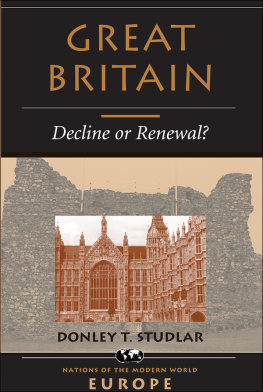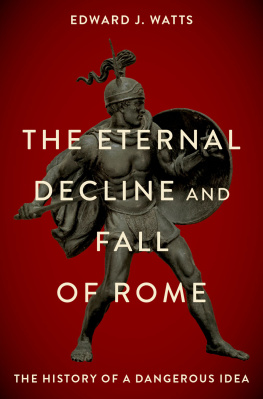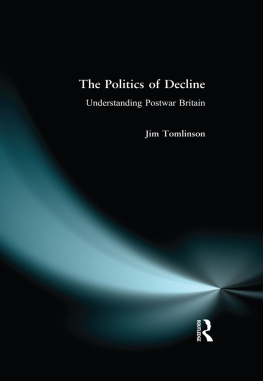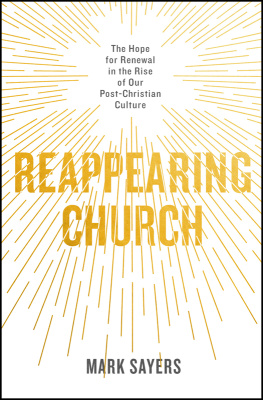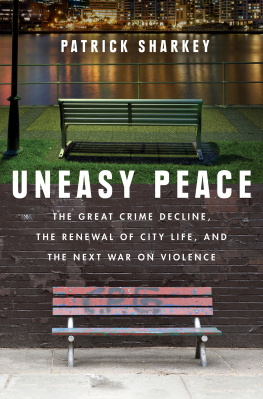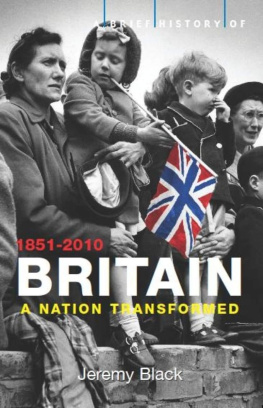Nations of the Modem World: Europe
First published 1996 by Westview Press
Published 2018 by Routledge
711 Third Avenue, New York, NY 10017, USA
2 Park Square, Milton Park, Abingdon, Oxon OX14 4RN
Routledge is an imprint of the Taylor & Francis Group, an informa business
Copyright 1996 Taylor & Francis
All rights reserved. No part of this book may be reprinted or reproduced or utilised in any form or by any electronic, mechanical, or other means, now known or hereafter invented, including photocopying and recording, or in any information storage or retrieval system, without permission in writing from the publishers.
Notice:
Product or corporate names may be trademarks or registered trademarks, and are used only for identification and explanation without intent to infringe.
Studlar, Donley T.
Great Britain : decline or renewal?/Donley T. Studlar
p. cm. (Nations of the modern world. Europe)
Includes bibliographical references (p.) and index.
ISBN 0-8133-1508-5 (hc).ISBN 0-8133-1509-3
1. Great BritainPolitics and government20th century. 2. Great
BritainEconomic conditions20th century. 3. Great Britain
Social conditions20th century. I. Title. II. Series.
DA566.7.S77 1996
941.082dc20
95-52767
CIP
ISBN 13: 9780-8133-1509-6 (pbk)
Nations of the Modern World: Europe
edited by W. Rand Smith and Robin Remington
This series examines the nations of Europe as they adjust to a changing world order and move into the twenty-first century. Each volume is a detailed, analytical country case study of the political, economic, and social dynamics of a European state facing the challenges of the post-Cold War era. These challenges include changing values and rising expectations, the search for new political identities and avenues of participation, and growing opportunities for economic and political cooperation in the new Europe. Emerging policy issues such as the environment, immigration, refugees, and reordered national security priorities are evolving in contexts still strongly influenced by history, geography, and culture.
The former East European nations must cope with the legacies of communism as they attempt to make the transition to multiparty democracy and market economies amid intensifying national, ethnic, religious, and class divisions. West European nations confront the challenge of pursuing economic and political integration within the European Union while contending with problems of economic insecurity, budgetary stress, and voter alienation.
How European nations respond to these challenges individually and collectively will shape domestic and international politics in Europe for generations to come. By considering such common themes as political institutions, public policy, political movements, political economy, and domestic-foreign policy linkages, we believe the books in this series contribute to our understanding of the threads that bind this vital and rapidly evolving region.
Great Britain: Decline or Renewal?
Donley T. Studlar
Spain: Democracy Regained,
Second Edition, E. Ramon Arango
Denmark: A Troubled Welfare State,
Kenneth E. Miller
Portugal: From Monarchy to Pluralist Democracy,
Walter C. Opello, Jr.
FORTHCOMING
The Czech and Slovak Republics, Carol Leff
Albania, Elez Biberaj
Austria, Anton Pelinka
The Netherlands, Thomas R. Rochon
The Politics of Belgium, John Fitzmaurice
Ireland: The Challenge of Conflict and Change,
Second Edition, Richard B. Finnegan
Modern Greece, Keith R. Legg and John Roberts
France: Grandeur or Decline? W. Rand Smith
Germany, W. Donald Hancock and Henry Krisch
Italy, Patrick McCarthy
Switzerland, Ulrich Klti
THIS BOOK REPRESENTS a synthesis of twenty-five years spent studying British politics, during which time I have accumulated a large number of intellectual debts. My first formal course dealing with the United Kingdom was an undergraduate course on Western Europe at Texas Tech University in 1968, in which I learned about the country through the first edition of Richard Roses book Politics in England. Subsequently I pursued graduate work on the subject at Indiana University, with dissertation guidance from James B. Christoph. The award of a fellowship from the National Defense Education Act, Title IV, sustained my graduate career. For the year I did field research for my Ph.D. dissertation on immigration policy in British electoral politics (1973), Richard Rose invited me to reside at the University of Strathclyde. My education was greatly enhanced by the faculty and graduate students there, as well as by the broader contacts residence in Glasgow allowed me. Over the years Chris and Marie Hewitt, whom I met there, have sensitized me to many issues, including British-Irish relations.
Soon after starting my first job at the University of Nebraska, I became a charter member of the British Politics Group (BPG), an academic organization based in the United States and devoted to the furtherance of scholarly study of the United Kingdom. Active involvement in this organization has enabled me to increase my knowledge and broaden my perspectives. I was fortunate enough to be awarded the first Samuel H. Beer dissertation prize given by the BPG. Professional association with the longtime executive secretary of the BPG, Jorgen Rasmussen of Iowa State University, has been an immensely rewarding experience. In 1994 I succeeded him as executive secretary.
Through the years at three other institutions of higher education in the United StatesCentre College, Oklahoma State University, and West Virginia UniversityI have been afforded various opportunities to study Britain in greater depth. The libraries of these institutions, especially their interlibrary loan facilities, have been instrumental in clearing up problems. During a sabbatical year at the University of Warwick in 1983, I enjoyed the hospitality and assistance of one of the leading departments of political studies in the United Kingdom. Zig Layton-Henry and Jim Bulpitt were particularly helpful. Over the years my employers have also allowed me to test my ideas on students, mainly undergraduates, from widely divergent backgrounds.
During this twenty-five-year period, I have published a number of articles in scholarly journals on both sides of the Atlantic. Many of these have been collaborative efforts, and my coauthors on three continents deserve special thanks. They are Susan Welch, Ian McAllister, Zig Layton-Henry, Lee Sigelman, Richard Flickinger, and Alvaro Ascui. In addition, Jerold Waltman and I have coedited two volumes of original essays on Britain, one focusing on institutions, the other on social and economic policy. This volume expands the focus again. The theoretical focus of this book has been influenced by conversations with T. Alexander Smith of the University of Tennessee and Ray Tatalovich of Loyola University of Chicago.


